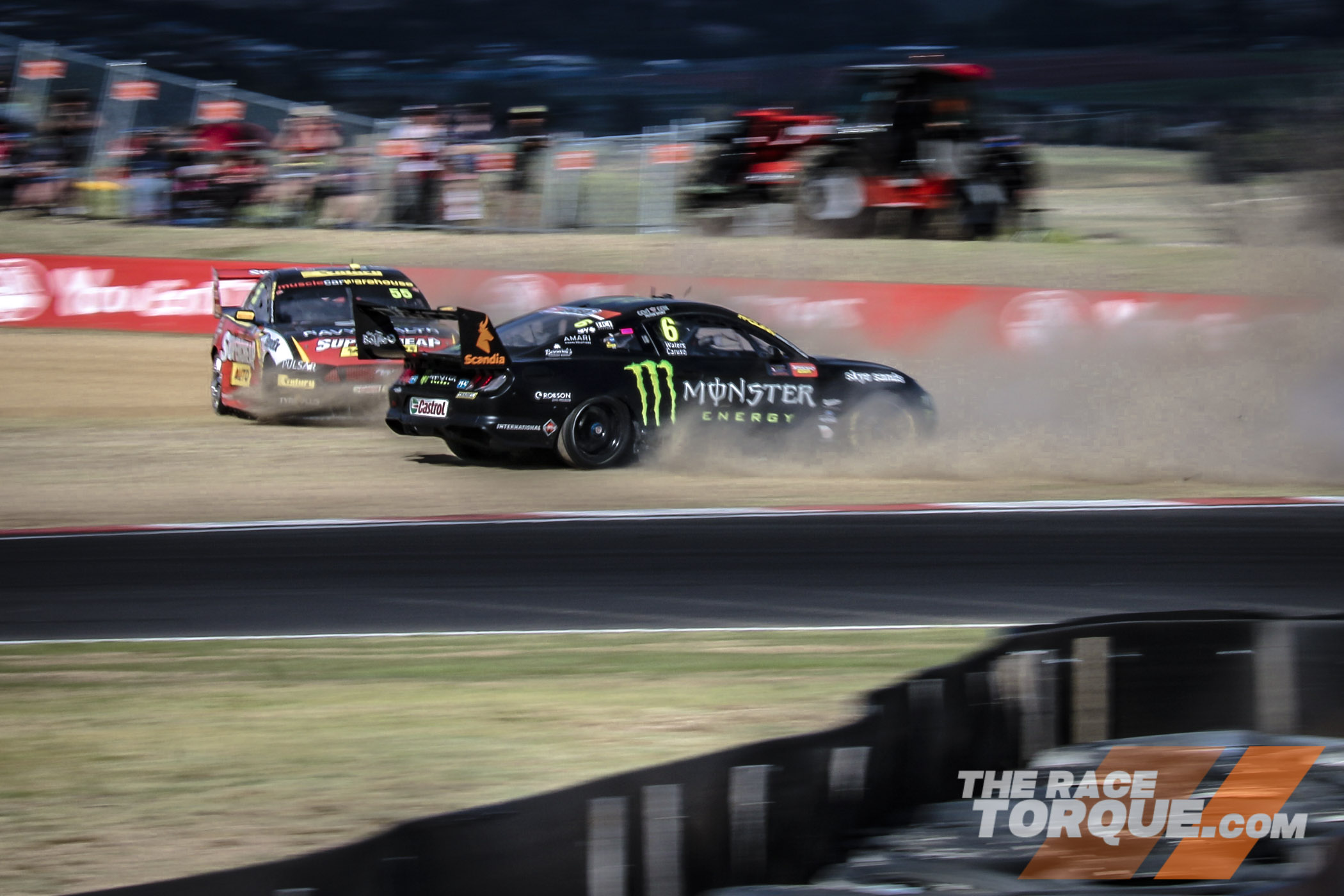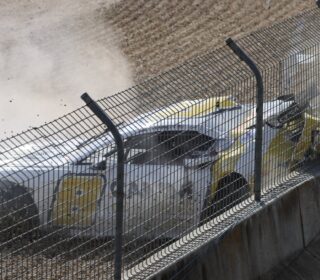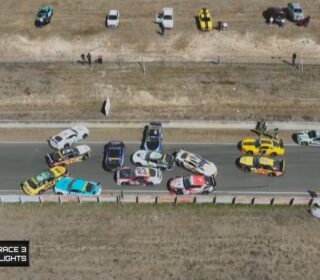COMMENT: REWARDING MEDIOCRITY AT BATHURST

ONE interesting rule change for this year’s Supercheap Auto Bathurst 1000 will see lapped cars given a free pass to un-lap themselves, seemingly a solution to something that just wasn’t an issue, and a change which is set to reward mediocrity.
WORDS & IMAGE: Mark Walker
In essence, the rule states that when the lights on the safety car are extinguished on Conrod Straight, cars one or more laps down situated within the queue will be allowed to pass the leader, and gain a lap back.
Previously lapped cars stayed within the safety car queue, except for late in the race, when they would be required to trundle through the pits on the lap before the restart, meaning that all of the lead lap cars lined up at the head of the field.
The thing is, you never heard about it, because it worked.
By the end of the Bathurst 1000, if you are a lap down, you’re not going to be in contention to win, and by dropping to the tail of the line, it allowed those who are still competitive to fight it out, without the need for the marshals to wear out their blue flag waving arms.
Under the previous system, if you were fast enough and played your cards right, you were still capable of earning a lap back if you suffered early dramas.
A pair of famous examples included Larry Perkins in 1995 and Jamie Whincup in 2014.
However, with the 2020 system, everyone down a lap will be given a handout, whether they deserve one or not.
Perusing the result sheet from 2019, the following cars were a lap down at the chequered flag: Simona de Silvestro/Alex Rullo, Nick Percat/Tim Blanchard, Chaz Mostert/James Moffat, Maculey Jones/Dean Canto and Jack Le Brocq/Jonathon Webb.
Two laps down were Alex Rossi/James Hinchcliffe and Garry Jacobson/Dean Fiore.
From the one lap down cars, the only machine that was in the conversation during the entire race was Mostert/Moffat, which lost a lap after crashing, getting stuck in the gravel trap, and subsequently copping a penalty.
The cars two laps down both got stuck in gravel traps late.
Did any of these cars deserve a gift, especially Mostert?
There are more factors to consider with the rule: what’s the value in placing genuinely slow cars a kilometre out front of the leading pack for them only to be gobbled up again shortly after a restart?
While this change fixes something that wasn’t a problem, a guaranteed Not on our Power Rankings will again be double stacking – a by-product of the two car pairs only being allowed a single pit boom each.
Instead of adding cars into the finishing mix, double stacking continually takes good cars out of the equation, but there’s no perfect fix to the problem – closing the pits under safety car conditions would take some strategy out of the race, while it also has the potential to penalise those who genuinely need to refuel.
Richard Craill made another suggested fix earlier in the year.
Still, double stacking is an issue, and it will continue to be one until they bother to change the rules.
What Actually Makes a Good Bathurst Finish?
Let’s pretend Mostert got his lap back last year – would he have figured in the race to the finish?
Even if he had a rocket ship, it would have been difficult for him to crack the top eight, even if everything went perfectly for him.
The race at the end of Bathurst doesn’t need more fringe players padding out positions 10 through 20 – it just needs two competitive cars duking it out for the lead, which is something we’ve seen plenty of in recent years.
Over the past decade we’ve had tight finishes between the leading pair in 2010, ’11, ’12, ’13, ’14, ’15, ’16 and ’19.
In 2017 the margin was under 4sec, while a 64 lap green flag run ended the 2018 race, which resulted in a final victory margin of 6sec.
More often than not, a late race safety sets up a dash to the flag, and while having everyone on the same lap is well and good, the focus will forever be on the leaders.
Following the announcement of the rule change, comparisons have been drawn to NASCAR, which has a pair of mechanisms for regaining lost laps under yellow flag conditions.
One is the “Lucky Dog” free pass – the leading car one lap down at the time of a yellow flag is allowed back onto the lead lap once the field is under control – providing they didn’t bring out the yellows in the first place.
This beneficiary rule came into being after an incident at New Hampshire in 2003, when the wrecked car of Dale Jarrett sat in the middle of the race track.
In those days, when the yellow flags waved, lapped cars could race the leader back to the start line to earn their lap back – sometimes the leader chose not to fight, other times they did, which would cause clear safety problems with fields charging through accident sites.
The Lucky Dog is constantly in play during the race – lapped cars will fight hard to be in that fortunate position, and this brings up one of the main differences between NASCAR and Bathurst: instead of a 6,213m track with 24 cars, NASCAR races on ovals as short as 800m with nearly 40 car fields – it is very easy to go a lap down, even if you are competitive.
The other method for NASCAR competitors to get back a lap is via the “Wave Around” – choosing not to pit under a caution, lining up in front of the race leader, and being waved passed the pace car just prior to a restart, vaguely along similar lines to the new Supercars rule.
This particular method is often used to equalise the field when a yellow appears during a green flag cycle of pit stops, as occurred recently in Las Vegas.
Late in the race, Kurt Busch ran an alternate strategy to much of the field, and thanks to a well-timed caution and late stop, he was the only left car on the lead lap.
With racing laps only taking 31sec, the act of slowing and receiving service under green flag costs teams a lap – which is remedied either by the pit cycle playing out under green flag, or by the Wave Around if there is a yellow.
In NASCAR, free passes back onto the lead lap are a necessity to keep the sport fair and interesting, while at Bathurst it offers automatic forgiveness for those who have had a bad day.







